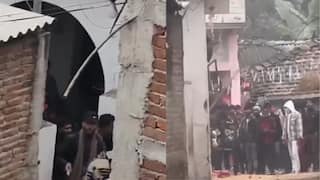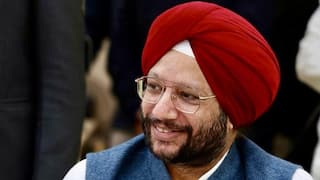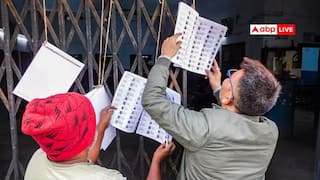Bilkis Bano Case: Why Gujarat Govt Wants Supreme Court To Delete Remarks From Judgment
The Gujarat government wants the top court to delete "adverse remarks" made by the Supreme Court against it in the verdict that sent the 11 convicts back to jail. Here's why SC made those remarks:

The Gujarat government has moved the Supreme Court against the January 8 judgment that quashed remission granted to 11 convicts in the Bilkis Bano case. The Gujarat government wants the top court to delete "adverse remarks" made by the Supreme Court against it in the verdict that sent the 11 convicts back to jail. The Supreme Court had said that the Gujarat government usurped power not vested in it and aided the convicts.
What Were The "Adverse Remarks"?
The bench of Justices BV Nagarathna and Ujjal Bhuyan concluded that the apex court in the May 2022 judgment was misled by suppression of facts by the convict. It ruled that the use of power by Gujarat to grant relief to the convicts after the May 2022 ruling amounted to usurpation of power of the Maharashtra government.
The judgment said that the Gujarat government has acted in tandem with the convicts in misleading the Supreme Court.
"This is exactly what this court had apprehended at the previous stages of this case and had intervened on three earlier occasions in the interest of truth and justice by transferring the investigation to CBI and the trial to Special Court in Mumbai. Exercise of discretion by the State of Gujarat is nothing but an instance of usurpation of jurisdiction and an instance of abuse of discretion." The January 8 verdict by the top court read.
ALSO READ | Are Women Getting Pregnant In Indian Prisons? What Last Five-Year Data Shows
The bench of Justice BV Nagarathna while passing the verdict said that if really the State of Gujarat had in mind the provisions of law and the judgments of this court, and had adhered to the rule of law, it would have filed a review petition before this court by contending that it was not the appropriate Government to grant remission.
In its review petition, the state government has said that the observation by the top court that the State of Gujarat “acted in tandem and was complicit with the accused" has caused great prejudice to the State.
The petition filed by the state government seeks deletion of these remarks saying that the observation that the state acted in tandem and was complicit with convicts who misled the court is highly unwarranted and against the record of the case.
Why The Court Made These Observations?
In May 2022, another Supreme Court bench of Justices Ajay Rastogi and Vikram Nath held that the Gujarat government had the jurisdiction to decide the remission as the offence took place there. This judgment was found to be "bad in law" in the January 8 judgement as it ignored precedents set by previous judgments and the statutory mandate. The bench of Justice Nagarathna held that the Supreme Court was misled by convict no. 3 Radheshyam Shah to pass the judgment's that paved the way for the release of 11 convicts.
Radheshyam Shah, one of the convicts, moved the top court seeking directions to the Gujarat government to consider remission for the 11 convicts. The Supreme Court in the January 8 judgment found that Shah suppressed material facts including the Gujarat High Court order that had disposed of his petition twice and asked him to approach the Maharashtra government. He also suppressed the opinion of the Gujarat judge and made misleading statements.
Shah invoked the apex court's jurisdiction under Article 32 of the Constitution. However, it was found that he did not mention his application before the Maharashtra government. He also concealed adverse opinions by the CBI and the district judge's opinion.
The apex court held that the May 2022 judgment was passed as Shah misled the Supreme Court that there was a divergence of opinion between the Bombay High Court and the Gujarat High Court and found that Gujarat government was complicit and worked in tandem with him to mislead the Supreme Court.
A divergence of opinion between the two high courts lays the ground for a writ petition to be accepted in the Supreme Court.
The bench headed by Justice Nagarathna held that the earlier ruling of May 2022 was invalid in law.
The Gujarat government has now filed a petition against the judgment saying it acted only as per the mandamus issued by the Supreme Court in the May 2022 judgment.
The Gujarat government has also submitted that the May judgment by the top court shows that it had told the Supreme Court and the Gujarat High Court that it was the Maharashtra government that had power to decide on remission pleas since the trial happened in Maharashtra.
Related Video
Uttarakhand News: Winter Chill Grips North India; Kedarnath Dham Covered in Snow





































